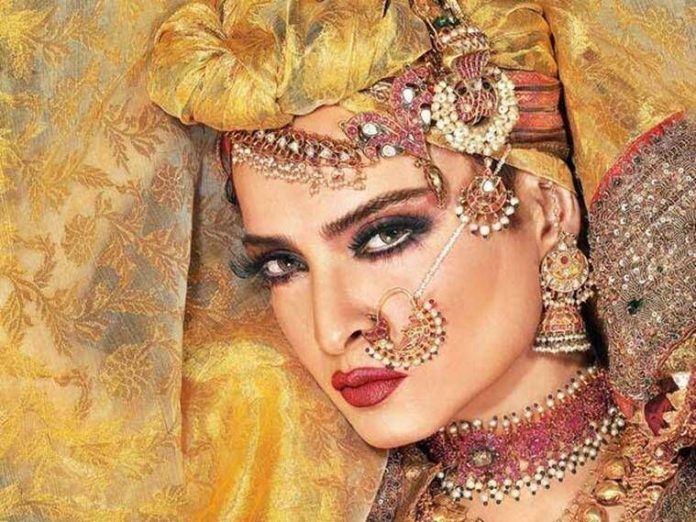Reading Time: 6 minutes
Rekha has not done a film in nearly two decades, which means there is a whole generation that has never seen her on screen. It is also true that there are a couple of generations that grew up in the 1970s and 80s, who could feel nostalgic when they see the Vogue Arabia photos that sent the internet into a tizzy; when she was active in movies, that’s what she did when people wondered what Rekha had been up to. She made sure she carefully rationed her interviews and public appearances, so whoever got photos of her and her famously bizarre self-aggrandising interviews (“I am god’s chosen one” and the latest “I am my own hugely amused audience”), automatically scored a scoop. However, she periodically released super glamorous photographs of herself, clicked by photographers she chose and directed to get her best angles, she scrutinised each frame and picked the ones that could be released to the public.
There was a fresh round of gushing in the media about how gorgeous she looked, the ageless diva, the fashion icon and so on. Of course, in this notoriously ageist industry—better now, because of all that wokeness, but not much—an actress trying to look youthful with airbrushed pictures could impress fans, but still did not get roles worthy of her status or talent. Before OTT made way for over 40 female stars, there were hardly any roles written for older actresses, except mothers to actors older than them. If Rekha had to retain her mystique, it made sense to go into reclusive mode and not have to scramble for meagre scraps from the male producers’ table.
Having done her fair share of weepy melodramas in the past, after a point—late 80s onwards, having done some exciting roles — Rekha projected strength, because that’s what happens, the screen image invades real life; her lifestyle projected independence and a no-bullshit attitude. Filmmakers, who at the best of times did not even think of older heroines, just did not know what to offer her. There was also the rigmarole she put them through if they wanted to meet her—the elusiveness, the cancelled appointments, the dangling for dates. People got fed-up and went to another actress, and so she had to accept the films from those who persisted and she ended up with Madame X, Khiladiyon Ka Khiladi, Mujhe Meri Biwi Se Bachao, Bach Ke Rehna Re Baba, Kudiyon Ka Hai Zamana, that were just cringeworthy. In between, there was also Mira Nair’s Kamasutra, Basu Bhattacharya’s Aastha, Shyam Benegal’s Zubeidaa, Rajkumar Santoshi’s Lajja, but stardom also means the ability to deliver box-office success. Without hits, fame is futile.
However, when Rekha was at the peak of her career, there was that perfect combination of beauty, talent and that immeasurable factor, charisma, that kept her ahead in the race. In those days, if Rekha was in a film, it was worth watching, even if she was not the central character. Then, as now, it was the male stars who called the shots. And she formed this great screen partnership with Amitabh Bachchan, like Hema Malini did with Dharmendra, Mumtaz and Sharmila Tagore with Rajesh Khanna.
Gossip magazines of the time wrote about the great affair, but neither of them bothered to answer questions about it, and without confirmation, it is all just speculation, with maybe a bit of titillation for readers of fanzines.
In spite of being a star kid at a time, when nobody bandied around the nepotism word, Bhanurekha, the daughter of Tamil superstar Gemini Ganesan and actress Pushpavalli, did not have stardom handed to her on a platter, it was hard won.
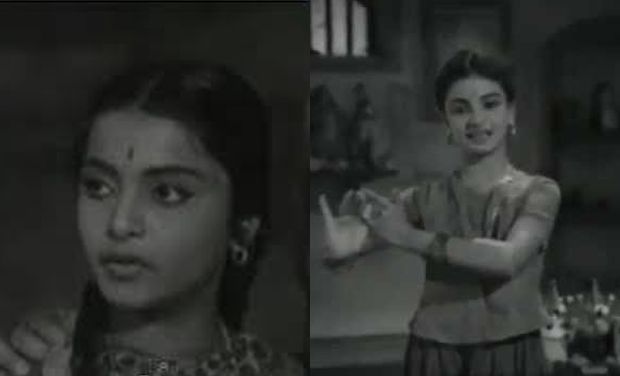
Her first Hindi film, Saawan Bhadon (1970) was a hit—it has a new leading man too, Navin Nischol, so she got some of the credit, but the industry was more mean-spirited then and nobody cared about political correctness. She was called dark, chubby, unsophisticated, but she was undeniably talented and hard-working.
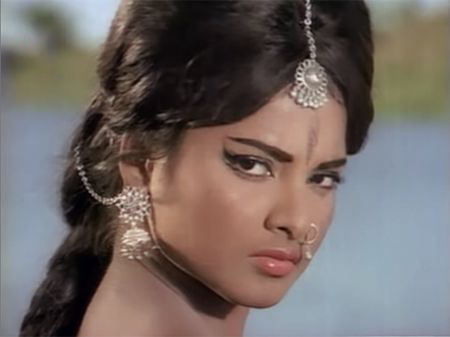
When her films started becoming hits, producers bit back their barbs and cast her. Or her filmography (on imdb.com) would not have hit 190, which is a huge number of films, even if many of them are forgettable.
She was cast with the top heroes of the time, Dharmendra, Rajesh Khanna, Vinod Khanna, Jeetendra, Sanjeev Kumar, Vinod Mehra. Then she was cast in Hrishikesh Mukherjee’s Namak Haram (1973) and Amitabh Bachchan was in it, though she was paired with Rajesh Khanna. Three years later, she was cast opposite Bachchan in Do Anjaane and it could be considered a turning point in her career, which was never short of hits.
There is also the fact that most mainstream heroines of the time were interchangeable; it was the age before stylists and trainers, so they all wore the same garish outfits, big hairdos and excessive make-up. It took Rekha some effort to acquire the sheen of style. She gave the unnamed ‘him’ the credit for her makeover, but maybe there she was doing an injustice to herself. Throughout her career, she has worked at reinventing herself. In the 1980s, when fitness was not a fad, she learnt yoga with Ramma Bans and came up with her Mind & Body Temple video, probably inspired by Hollywood star’s aerobics video. Still, it was quite a craze then, and Rekha could have been the one to kick off the fitness trend. Magazines wrote about her amazing transformation from overweight to svelte. Even her voice took on a low, sexy timbre.
When she was a mainstream success with Sharmila Tagore, Mumtaz, Hema Malini, Rakhee, Zeenat Aman, Reena Roy, Moushumi Chatterjee, Parveen Babi, even Shabana Azmi and Smita Patil when they did commercial films, as her competition, she dared to do offbeat films like Ghar, Kalyug, Vijeta. In the late Seventies and early Eighties, she had hits like Mr Natwarlal, Muqaddar Ka Sikander, Kartavya, Khubsoorat, and the National Award-winning highpoint of her career, Umrao Jaan (1980).
The triangle she was involved with blew open with the release of Yash Chopra’s Silsila (1981), which became gossip fodder for months, but did not do well commercially. That may have also caused the cooling down of the rumours, even though she wore sindoor in her hair, and looked enigmatic when asked about it. (Her marriage to businessman, Mukesh Agrwal was short-lived and ended in his tragic death by suicide).
By this time, she was also a fashion icon, with her make-up, hairstyles, saris, blouses and jewellery being imitated by women all over the country. (That thick line of sindoor and maroon glossy lipstick that some women still favour, goes back to Rekha).
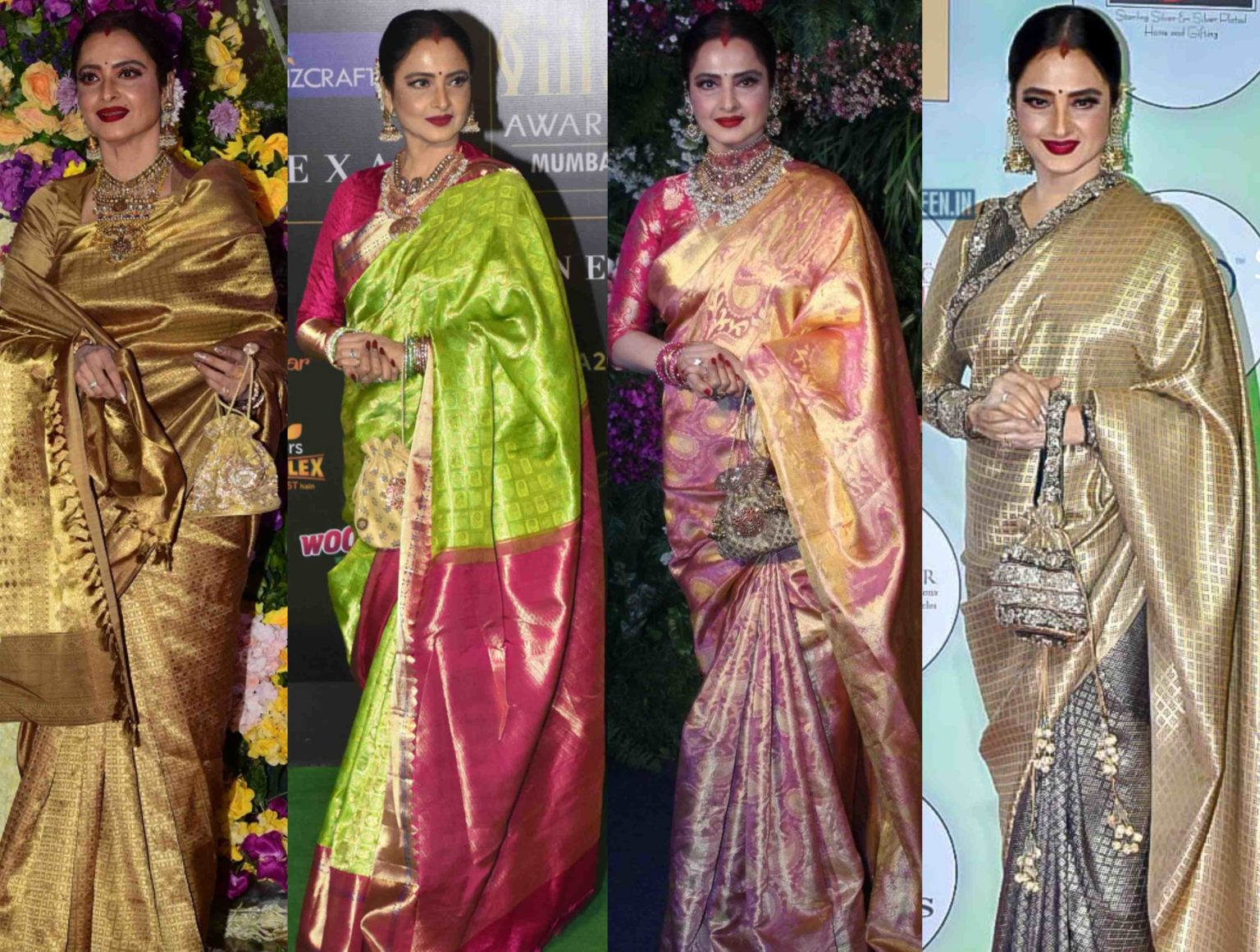
There was a younger lot of leading ladies making a mark—Sridevi, Jaya Pradha, Madhuri Dixit, Tina Munim to name a few. Still, when an actress was required who combined glamour and talent, the roles went to Rekha—like Utsav, Ijaazat, Basera, also the revenge drama Khoon Bhari Maang.
Her past filmography was enough to keep up audience interest in her, even as her movie releases slowed to a trickle. It was also that air of mystery that she deliberately cultivated, hidden behind the walls of the bungalow, into which very few of the inner circle were admitted.
She appeared at awards functions, resplendent in gold Kanjeevarams and temple jewellery, looking elegant and majestic, also, more out of date each year. That kind of overblown glamour was dropped by the new bunch of actresses, who favoured gowns and Western outfits, and a casual Insta interaction with fans.
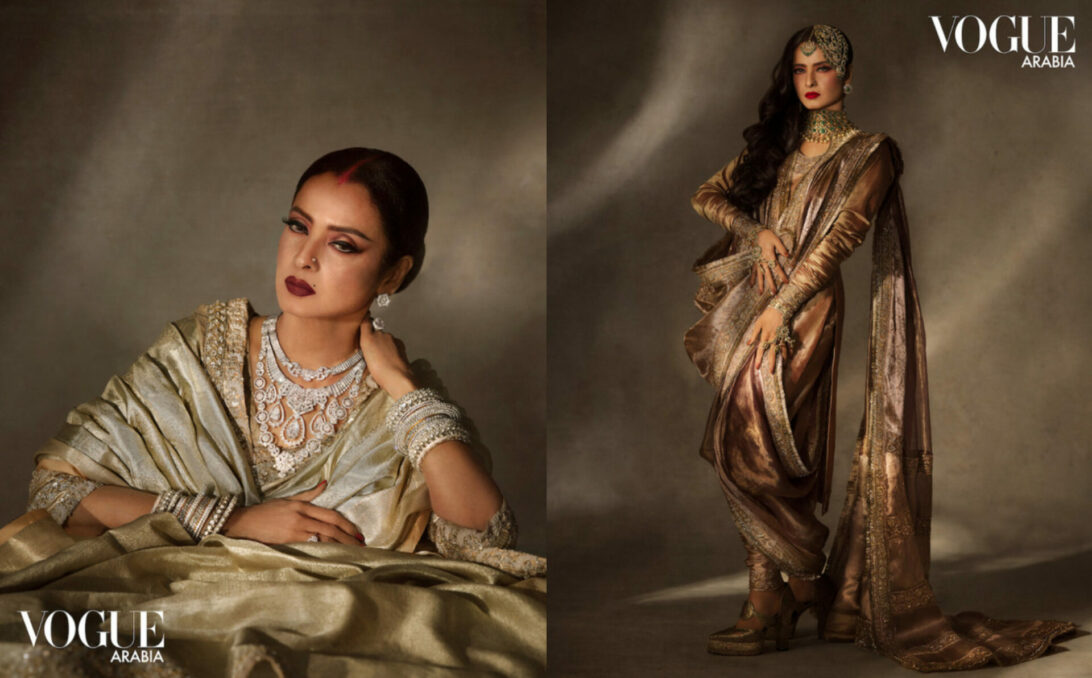
The new Vogue photo spread and the slightly ridiculous Barbie AI images created by Myntra (she never looked like that when she was young), really do not do Rekha any favours. Of course, she appears fabulous, but also fake, so thickly layered with make-up that she can’t smile, hence, the standard sultry gaze. The millennial and Gen Z generation admire her classic beauty, but also think she is a throwback.
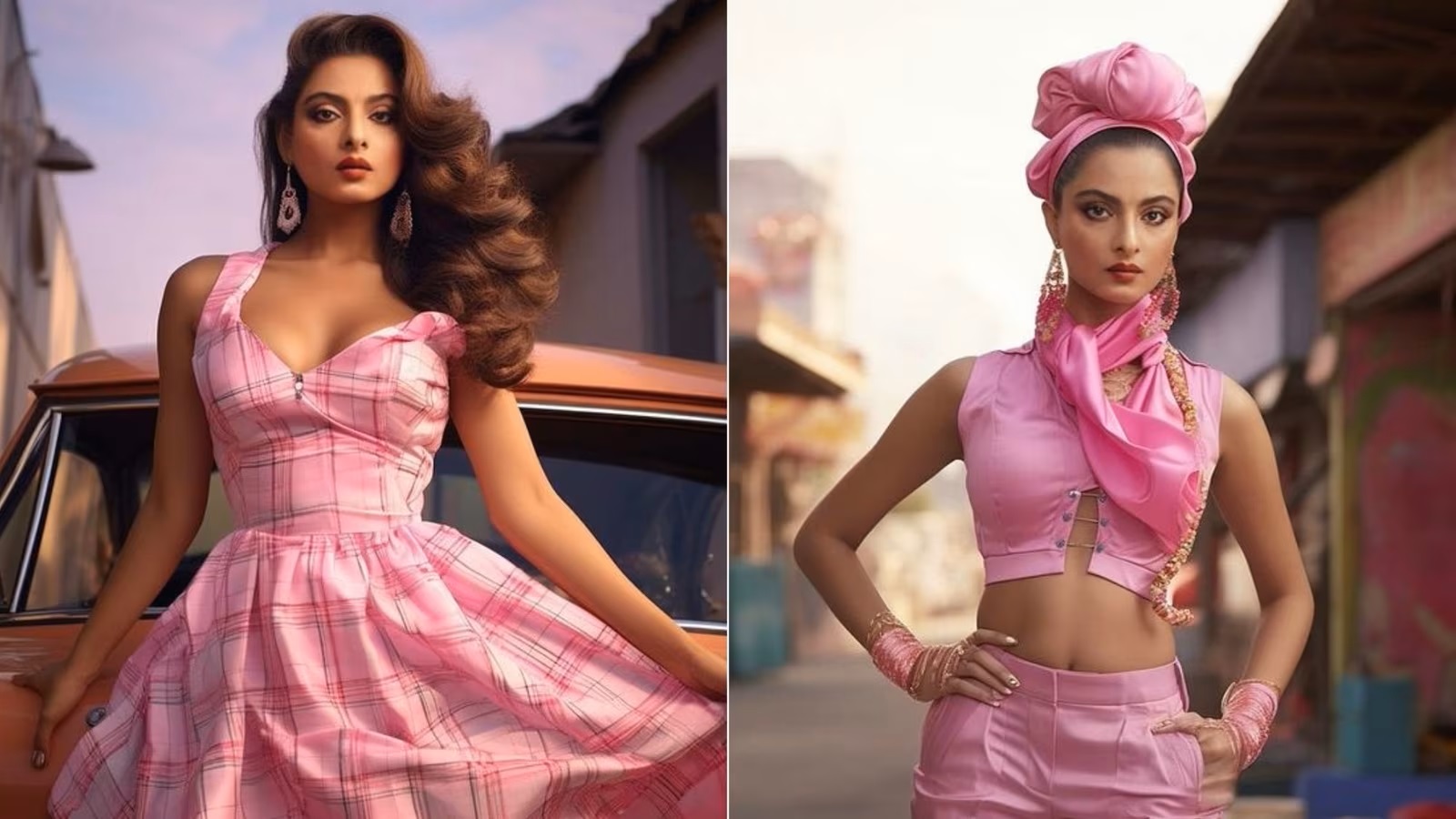
Hema Malini, Zeenat Aman, Shabana Azmi face the world without make-up and artifice. They have lives and careers that allow them to interact with the world outside, while Rekha keeps herself shut in her ivory tower. Women would want to see older women look natural and not surgically altered or plastered with paint. Zeenat Aman and Dimple Kapadia wear their grey hair with pride. There is nothing shameful about ageing, about facial lines that indicate a life well lived. When Rekha can face the world without filters, she will come out as the true diva and an inspiration for women who have grown up idolising her.



